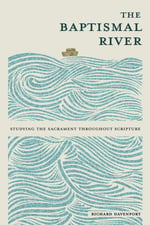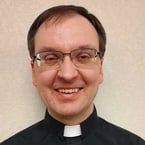The Old Testament is full of prophets and their prophecies about God’s will for that time and the age to come. But what about today? Do we still have prophets? The following has been adapted from The Baptismal River: Studying the Sacrament throughout Scripture.
God Calls Prophets
The anointing of priests and kings is significant all on its own, but those are not the only people God anoints. We’ve seen kings anointed already. So, it is no surprise that Elijah would be directed to anoint kings here. However, prophets are new to us. As theirs is another position that’s important to the functioning of God’s people, it shouldn’t surprise us that prophets would be ordained as well. But what is it that makes someone a prophet? Let’s take a look.
The LORD your God will raise up for you a prophet like me from among you, from your brothers—it is to Him you shall listen—just as you desired of the LORD your God at Horeb on the day of the assembly, when you said, ‘Let me not hear again the voice of the LORD my God or see this great fire any more, lest I die.’ And the LORD said to me, ‘They are right in what they have spoken. I will raise up for them a prophet like you from among their brothers. And I will put My words in His mouth, and He shall speak to them all that I command Him. And whoever will not listen to My words that he shall speak in My name, I Myself will require it of him. But the prophet who presumes to speak a word in My name that I have not commanded him to speak, or who speaks in the name of other gods, that same prophet shall die.’ And if you say in your heart, ‘How may we know the word that the LORD has not spoken?’—when a prophet speaks in the name of the LORD, if the word does not come to pass or come true, that is a word that the LORD has not spoken; the prophet has spoken it presumptuously. You need not be afraid of him. (Deuteronomy 18:15–22)
God’s Purpose for Prophets
Looking back on the life of Moses and of the prophets that will come after him, God describes what makes someone a prophet. We tend to think of prophecy as just telling the future, but there’s a subtle distinction here. Prophets aren’t really interested in telling the future. They are there to proclaim God’s Word. Because the messages proclaimed by God’s prophets are His, they must come to pass. Whether the Word to be proclaimed is one of salvation or judgment, the prophet’s job is the same.
The list of those individuals God called specifically to be prophets ended with John the Baptist. When Jesus was anointed with the Holy Spirit in His Baptism, Jesus took His place as prophet supreme. Though the biblical role of prophet has ended, Christians are still called to be prophets in their lives today. With the completion of Scripture, there is nothing new to be revealed to God’s people before Christ returns.
Prophecy to Proclamation
In that sense, prophets are no longer necessary. However, as Christians, we are still called to proclaim the Word God has revealed. God told us much about the future regarding the new creation and the work He has yet to complete. He has promised it to His people, and His promise will be fulfilled. That means we still have work to do proclaiming what God says about life in the present day and about what is yet to come in the future.
You might wonder why proclaiming the Word is part of the image of God, but Adam’s first failure was not in eating the fruit. He failed to proclaim God’s Word to defend Eve from Satan. He failed in his duty as prophet, and thus, even though Eve eats the fruit first, the fault lies with Adam. This is why, with one exception, Scripture puts the blame for the fall of the world into sin squarely on him. Thus, anointing and Baptism seek to restore us to that duty and give us the knowledge of God needed to speak His will and Word into the sinful and unbelieving world.
Blog post adapted from The Baptismal River: Studying the Sacrament throughout Scripture © 2023 Richard Davenport, published by Concordia Publishing House, pp. 48–50.
Scripture: ESV®.
 To learn more about God’s gift of Baptism, read The Baptismal River.
To learn more about God’s gift of Baptism, read The Baptismal River.















